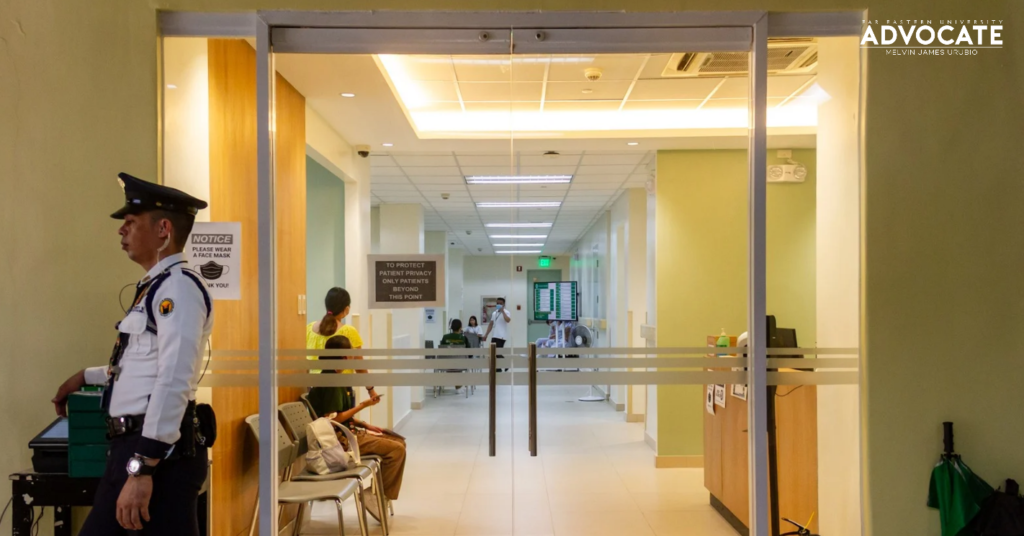
FEU womens out of final four race, falls to UP
- November 08, 2023 08:35
FEU Advocate
May 20, 2025 19:26

By Cassandra Luis J. De Leon
Far Eastern University Health Services (UHS) released safety protocols advisory last month due to high heat temperature in the country that contributed to eight recorded chickenpox infection cases in the University since January.
In an interview with FEU Advocate, UHS Director Desiree Chiongson clarified that there is no outbreak of the disease within the University.
Chickenpox is a highly contagious disease that surges during the dry seasons and is caused by the varicella-zoster virus that can spread by air through infected droplets and direct contact with the fluid from chickenpox blisters.
“Any person can be exposed in the malls, in public transport vehicles, during any social occasion, virtually in any public places and spaces. That is why it is very important to be aware of the recommended health and safety protocols and protect yourselves,” she said.
The symptoms of chickenpox include fever, headache, loss of appetite, tiredness, and the appearance of rashes that turn into vesicles in the chest, back, and face areas of the body.
Furthermore, Chiongson emphasized the need to ensure that the recommended health and safety protocols are observed.
“We each have to watch out for our own health and safety. Frequent hand disinfection and keeping safe physical distances from others are the minimal things to do. Wearing face masks when in public places is still highly recommended,” she added.
The director also ensured that UHS is offering vaccinations against chickenpox, but its availability is currently affected due to a lack of supplies from third-party providers.
“Right now, we have run out of the vaccine against chickenpox and are having difficulty sourcing it from outside, probably due to the increased demand in the general population, as different cities and municipalities in the country report increases in the cases in their respective areas,” Chiongson explained.
The virus that causes the disease is most likely to infect those who are unvaccinated and have not yet contracted it.
Moreover, patients who received consultations from University physicians were provided with the initial doses of medicines such as paracetamol or acetaminophen, mefenamic acid, antihistamines, and oral rehydrating solution.
UHS also gave additional medicines and advised them to stay at home to observe isolation protocols.
Prior to being allowed back to campus, UHS is requiring the students and personnel who recovered from chickenpox to present a medical clearance.
(Photo by Melvin James Urubio/FEU Advocate)









